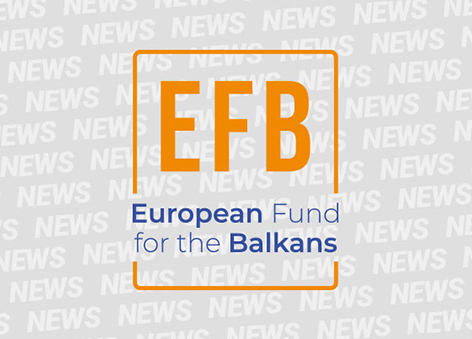
19.06.2013 All News
In the period between June 17 - 22, 2013 a group of renowned European journalists from high-quality European and German newspapers and agencies (Ann-Dorit Boy - Frankfurter Allgemeine Zeitung, Tim Judah - The Economist, Lukasz Lipinski - Polityka Insight, Elena Panagiotidis - Neue Zürcher Zeitung , Andrea Rizzi -El Pais, Piotr Smolar - Le Monde, Justus von Daniels - Die ZEIT / ZEITonline / Der Tagesspiegel) will be visiting Serbia, Kosovo, Albania and Bosnia-Herzegovina as part of the Robert Bosch Stiftung Balkan Study Tour for Journalists 2013. At the very beginning of this study tour on Tuesday, June 18, the journalists met with four alumni of the EFB Community (Ana Babovic, Jelena Jevtovic, Srdjan Hercigonja and Milos Djindjic) for a lunch meeting in Belgrade.
[block_quote cite='- says the EFB community member Ana Babovic, who was part of the EFB Fellowship Programme for Young Government Officials from the Western Balkans.'] It was a great pleasure to talk with the representatives from the seventh force, who are coming from all over Europe. Their visit was a clear sign that there is an interest for our country and its progress in the reforms and in the process of EU Integration. I’m especially delighted that I was invited at this meeting as an alumni of the European Fund for the Balkans and I hope that the journalists will leave from Belgrade with more real and positive impressions about Serbia. I also hope that they will share that image throughout Europe [/block_quote]
The current political situation in Serbia, whether Serbia will get a date for the start of EU membership talks, Serbia-Kosovo relations, the political parties landscape, the potential elections, the corruption issues and the economical crisis seen through the perspectives of the media, civil sector and the government officials were also on the menu during the vivid discussion.
After the useful exchange of information and experiences with the EFB Alumni, the journalists continued with their five day study trip in the region in order to get further insights into the current political, economic and social developments in Southeastern Europe. The mutual interest is that the experiences the journalists will gain during their visits to the different countries will contribute to a better understanding and a higher quality of media coverage of the regional issues during this critical period for the future of the region. In the same time, it is expected that this informative Balkan tour will contribute to a better assessment of international and in particular European Union policies towards the Balkans.






